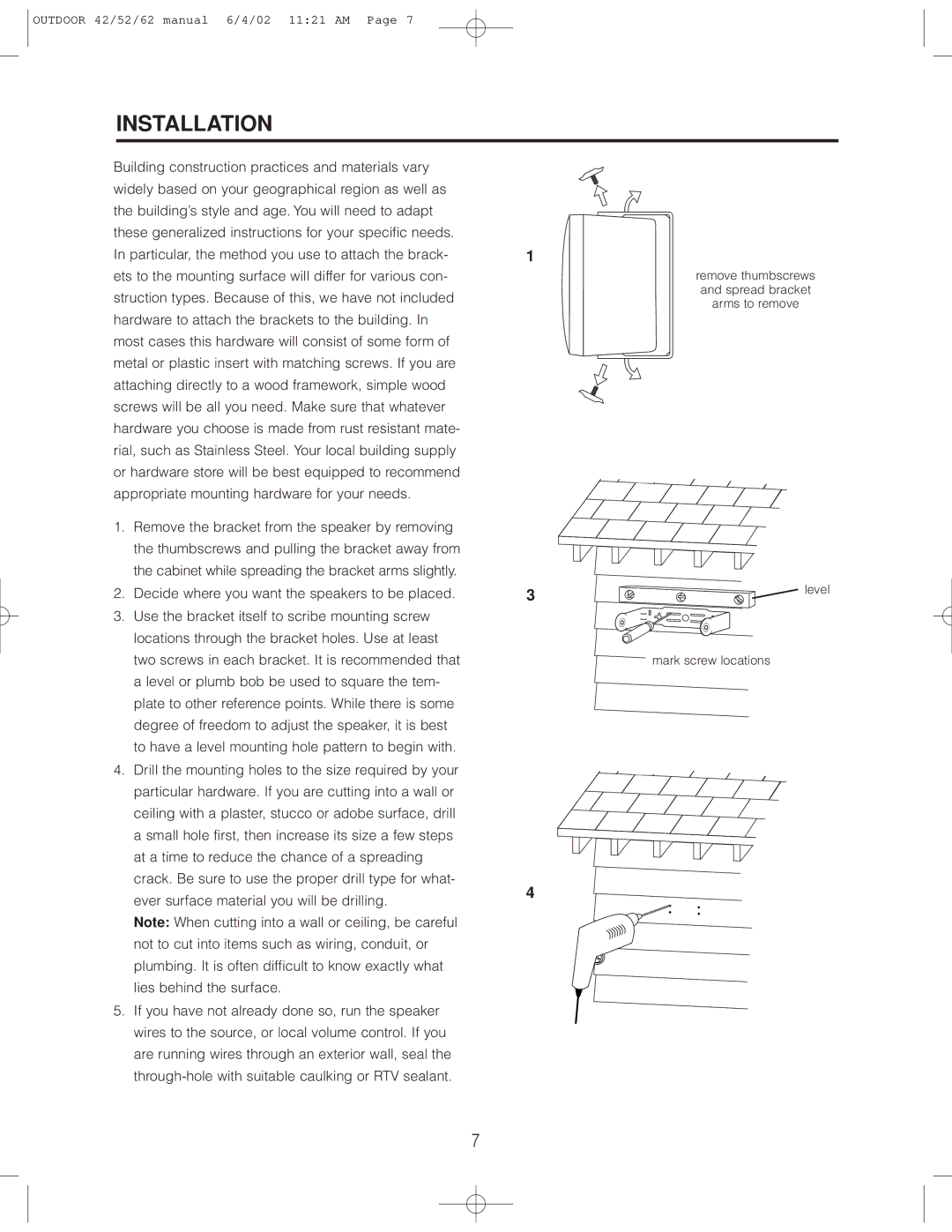Speaker specifications
Cambridge SoundWorks is a renowned name in the audio industry, celebrated for its innovative speaker technology and exceptional sound quality. The brand has garnered a loyal following thanks to its commitment to producing high-performance audio equipment that caters to both casual listeners and audiophiles alike.One of the standout features of Cambridge SoundWorks speakers is their superior sound reproduction. The speakers are engineered to deliver rich, clear audio across a wide frequency range. This is achieved through the use of advanced driver technology, including high-quality woofers and tweeters that work in tandem to produce balanced sound. The result is an immersive listening experience with crisp highs, detailed mids, and powerful lows.
Another noteworthy characteristic of Cambridge SoundWorks speakers is their versatility. Designed to enhance various audio environments, these speakers are ideal for use in home theater systems, gaming setups, and even portable applications. Many models incorporate Bluetooth connectivity, allowing users to stream music wirelessly from compatible devices. This added convenience makes it easier than ever to enjoy high-fidelity sound on the go.
Cambridge SoundWorks also emphasizes innovative design in its products. Their speakers often feature sleek, modern aesthetics that complement any décor. They prioritize user-friendly interfaces, making setup and operation straightforward for all users. Additionally, some models are designed to be compact and lightweight, allowing for easy placement in small spaces without sacrificing audio performance.
Durability and quality are hallmarks of Cambridge SoundWorks' manufacturing process. Many speakers are crafted from premium materials, ensuring longevity and resistance to wear and tear. Furthermore, the brand is known for its rigorous testing procedures, guaranteeing that each product meets high standards for performance and reliability.
In summary, Cambridge SoundWorks speakers are distinguished by their exceptional sound quality, versatile functionality, and stylish design. With technologies that enhance audio clarity and connectivity options that cater to modern listening habits, they provide an excellent choice for users seeking a superior audio experience. Whether for home use, on-the-go listening, or enhancing a cinematic experience, Cambridge SoundWorks speakers deliver a blend of performance and aesthetic appeal that stands out in the competitive speaker market.

